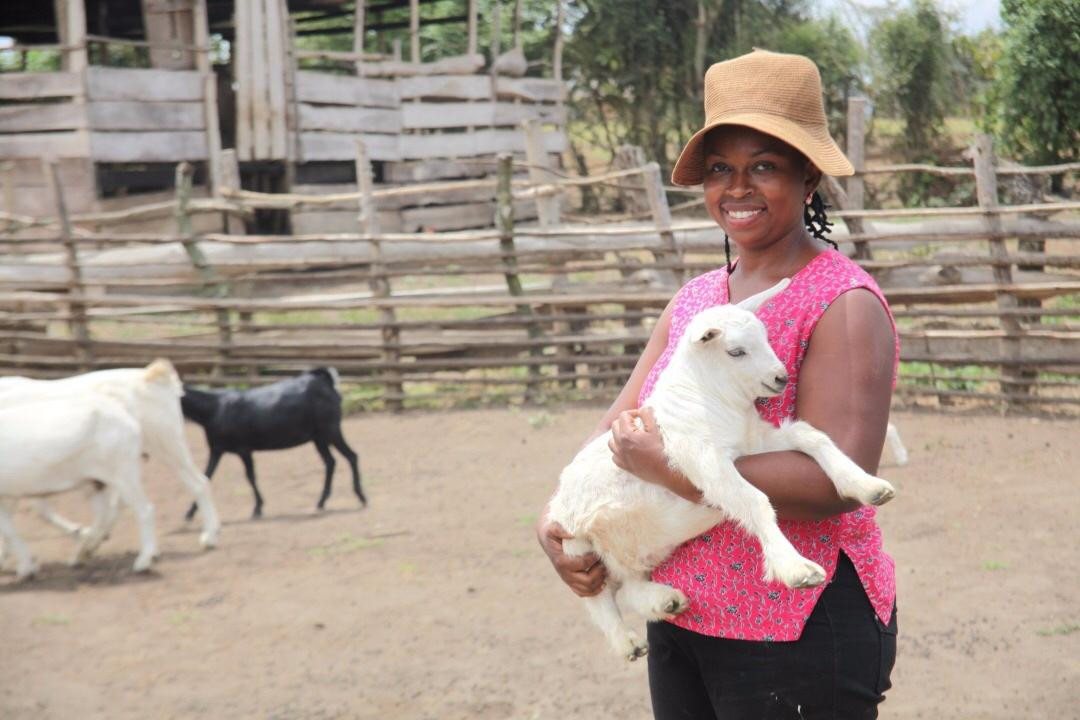I am trained in social work and was lecturing before I turned a full-time farmer keeping hybrid and local goats, a venture I started in December 2015 soon after resigning from my lecturing jobs at three universities.
I resigned to follow my passion, make my own money from my business which I call Bwogi Farms, be my own boss and most importantly create employment.
Before I resigned, I had for long not made up my mind but when some of my goat kids died, I realised the animals and the farm needed my close attention.
I started with a loan of $1,500 from a friend, with the money going into building a makeshift goat pen on a family land and buying a stock of 30 goats.
Currently, I have over 400 goats, but my target is to keep 1,000 because demand for the animals is high, with many buyers booking when they are still young.
Out of the goat project, I have managed to start a 10-acre banana plantation where I use manure from the animals to plant the bananas and they are doing very well.
The good thing with goats is that they require less capital to start, offer more profit, are easily marketable than cows and pigs and are prolific breeders thus they increase their numbers faster.
I sell 99 per cent of my farm products through social media sites like Facebook and WhatsApp and Mkulima Young website and the rest of the customers come through referrals. In a good month, I sell up to 80 goats of various sizes and 350 bunches of bananas (matoke).
While goats sometimes may be prone to diseases, the trick is to vaccinate them to reduce diseases like pneumonia and maintain good hygiene in the pens.
Besides diseases, the other challenges I face are high staff turnover because people do not consider farm work as a good job.
Most of the work on the farm is done manually, including cutting feeds for the animals but I am working on embracing technology.
There are also limited credit facilities for farmers in Uganda. Some of us have reached a stage where we want to grow but few banks are willing to give us credit. The few that extend credit to farmers do it at 28 per cent per annum, which is too high.
I am currently working on importing Boer goats from South Africa, a plan I intend to execute next month, to boost the breeds I keep and production.
I also hope to embrace paddocks because I have now bought my own land so that we can let the goats graze more on their own reducing labour costs.
I am working on being a strong member of the Global Farmers Network, which has enabled me link up with tens of other farmers who are willing to help me acquire machinery to make some farm activities less tedious and less time consuming.
My other plan this year is to start a 5,000 to 10,000 Kenbro or Kuroiler chickens farm because demand for yellow-yolked eggs is overwhelmingly big in Uganda. This project will help me diversify my income.
Do I regret resigning? In the first two years, I had regrets but now I am a very happy farmer. Farming has made me financially independent, expanded my networks and I have been able to impact a bigger population through trainings and consultancy services I offer all over East Africa.
I have created awareness through the trainings I do, farm visits and expos and mentored many young farmers than I can remember. My aim is to enable the youth and women in East Africa embrace farming, find it a doable career.
I always give young farmers these four pieces of advice to succeed. First, avoid farming in isolation, always consult. Second, look for market first before starting to farm. Third, be a member of an organised farmer group and lastly, farm in phases especially if you are doing crops so that you can manage the harvest and gain more.
Find Grace contacts here
You want to be a Mkulima Young Member like Grace? Register here
Being a member enables you to sell and/or accessing contacts for buyers seeking products. Also soon you will get regional market trends and prices projection for various agricultural commodities.
You want to be featured on our blog? Click here
Find Grace contacts here
You want to be a Mkulima Young Member like Grace? Register here
Being a member enables you to sell and/or accessing contacts for buyers seeking products. Also soon you will get regional market trends and prices projection for various agricultural commodities.
You want to be featured on our blog? Click here

